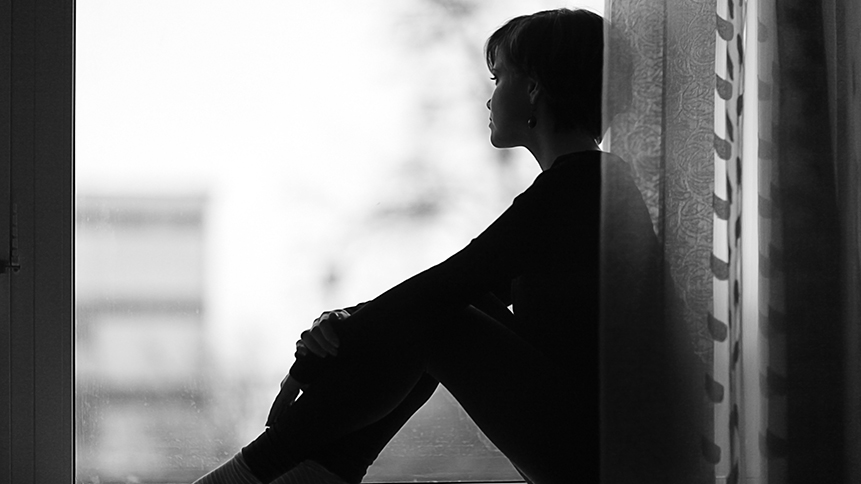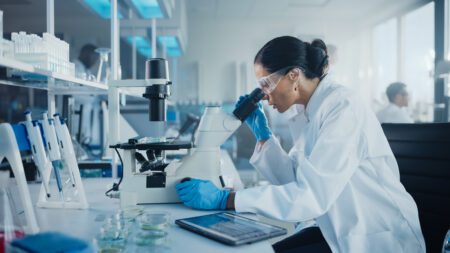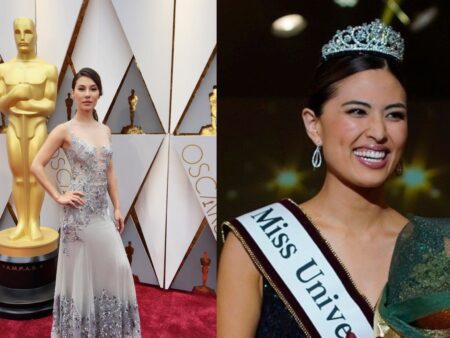
Sarah is a happily married musician living on the East Coast. She led a healthy life and came from a health-focused family and never expected to be on a seven-year fertility odyssey to have a baby. She also never could have imagined that while navigating her fertility path, she would also deal with breast cancer. Or that handling infertility would be more devastating than overcoming cancer.
She shares here with pregnantish about feeling more supported by the medical community and by her family and friends during her cancer battle than during her infertility process. She doesn’t blame anyone but thinks we all need to address infertility as a medical issue, like cancer, not something to be ashamed of. Here’s her story.
Once I realized I was dealing with a fertility issue, I started to understand what I didn’t know until I was in my mid-30s. That you could live healthy, feel healthy, and still have underlying issues that could lead to fertility challenges. No one ever talked about fertility in my family, or even my doctors, until it became a problem.
I had a lot of terrible periods in my teens and 20s. I would be laying on the floor in pain. My primary care physician and even an OB/GYN told me to just take pain meds.
My periods got better in my 30s. I’ve never smoked and barely drank. I ate vegetarian and organic. Before trying to get pregnant, I’d only been on birth control for a total of two months. I thought—I’m good! I’ve always been very healthy. I’ll get pregnant.
But after my husband and I got married in 2012 (we started trying to get pregnant that night!), I knew after a few months that I should find an OB/GYN.
By early 2013, with no pregnancy, I went for testing. Though I had no pain or obvious symptoms, an ultrasound revealed a 10-centimeter cyst on my ovary. (I couldn’t believe that it was the size of an orange in my abdomen and I didn’t know!)
I found a surgeon, who removed it as well as a large undiagnosed fibroid. The OB/GYN said that the cyst contained endometrial tissue. I had never had any doctor talk to me about endometriosis, even despite those years of painful periods.
Now that those physical issues were addressed, my husband and I thought we might get pregnant naturally. However, even though the surgeon preserved my ovaries, bloodwork soon showed that they weren’t functioning well.
I was 39. There’s a large fertility center where I live, and a lot of people I knew had gone to them. We started working with a Reproductive Endocrinologist (RE). She said that it was time for an IUI. The RE actually thought we should go right to IVF, but our insurance required that we try IUI first.
The IUI didn’t work. I got pregnant with my second IVF cycle in September of 2014, only to miscarry. I opted to miscarry naturally. It’s pretty awful but I don’t regret miscarrying that way. I wanted to feel what it meant to be pregnant and let my body work naturally.
We went back to IUI and I got pregnant again. I knew I was pregnant because I got sick. I was happy. I thought: “Yay! I feel sick!” But seven weeks later I miscarried again. I did a D&C because going through natural miscarriage once was enough.
They were able to do genetic testing and found chromosomal abnormalities, traced back to my eggs.
By the end of 2015, the RE suggested that we look into getting an egg donor. Trying to come to terms with the idea of not having any biological connection to my baby was the most devastating and painful point in my life.
We walked away from having a baby for about a year.
The fertility clinics I went to are like night and day from the cancer clinic. I went to three different locations of the fertility clinic. I felt so isolated and alone. No one talks to each other. Everyone averts their eyes.
In 2017, I had reconciled with using an egg donor because I really did want a baby and decided I could still carry the child, and could still connect and nurture the child.
Through all of this, none of the doctors or nurses suggested I talk to a therapist about my process. (I saw a flyer for a support group, but I couldn’t make the meeting time.)
As we were filling out the documents to choose an egg donor, one health form checklist item was for me to get a mammogram, but I could have waived that if I had had one within the previous three years. I had, but I decided to have the mammogram because I had felt a small lump in my breast.
The mammogram didn’t pick up the lump and the doctor couldn’t feel it, but I still did. Sure enough, a biopsy showed Stage 2 breast cancer. I was 43.
The RE was trying to be supportive and immediately suggested we consider a gestational carrier, but I thought: Slow down! I have to deal with the cancer.
In late 2017 to early 2018, I went through cancer surgery, four rounds of chemo, and radiation—five days a week for six weeks. My story is a great story, relatively speaking. A lot of people have it way worse than me.
I started hormone suppression medication in March 2018 to prevent the cancer from returning. The catch, of course: You can’t get pregnant on this drug. It was suggested that I be on the drug at least two years, but they really want you to be on it for five to ten. My oncologist and RE talked directly and they said I could go off the cancer medicine to try to get pregnant.
I was 44 by this time and I was already racking up high-risk pregnancy issues.
They didn’t know what the chance of the cancer returning would be if I went off the meds. I decided to give up on the idea of carrying a baby. This was another blow that I had to adjust to.
When you’re going through infertility or cancer treatments, you get used to setbacks, or things unfolding differently from how you imagine. And yet, you have to grieve every unexpected twist.
A key part of this story is the support I received at the cancer center. For one thing, there was a cancer resource center, where you could get several free therapist appointments. This was invaluable to me while undergoing treatment.
The therapy I was offered through the cancer center was the first time I talked to a professional counselor. I started talking to the counselor in January 2018, while I was doing radiation.
When you deal with cancer, first you’re in emergency mode, then when the medical crisis slows down, the emotions come. Our conversation wound up being all about my fertility issues and emotions surrounding it, so she recommended a fertility counselor.
What was so devastating: We had come so far to have a baby and now this (the cancer) was stopping us.
The counselor said that infertility is a “family issue,” so my husband started coming with me to talk with her. I wish someone had said this to me in 2013.
The counselor helped us understand and work through our options. Because of her, we went to an adoption informational session. She gave us material on using a gestational carrier, which is a kind of surrogate who carries the genetic embryo of at least one of the intended parents (IPs). (In this case, my husband’s sperm would fertilize the egg we had from a donor.) She also gave us material on how fertility issues can affect a marriage.
We went with a surrogacy agency that the counselor had suggested out of five or six agencies referred to us. And, in August 2018 we signed a contract to start looking for a gestational carrier.
Meanwhile, we went back to the fertility clinic to find an egg donor to have them ready for when the gestational carrier was found. We worked with our fertility counselor to figure out dealing with the donor clinic and choosing an egg donor. It’s a whole other emotional journey.
Also through her help, we have gone to a support group for IPs, the parents who help with the surrogacy process and care for the baby once the surrogate delivers. For me, it has been really helpful seeing other people face this reality and have a child with a donor egg. So many complicated emotions have come up through every step of this process of trying to build our family.
We are now under contract with our surrogate. We have a transfer date and are hoping for the best.
When you’re going through infertility or cancer treatments, you get used to setbacks, or things unfolding differently from how you imagine. And yet, you have to grieve every unexpected twist.
Coping with all of this — the infertility and the cancer — has been hard emotionally and mentally. But one thing that hasn’t been lost on me is that there’s treatment for cancer. There’s no treatment for “your eggs have failed.” That point would have been a good time for the clinic to recommend that I start seeing a therapist.
Another surprising difference of infertility vs. cancer treatment is the isolation in infertility clinics. When you get chemotherapy, you are put in a room with other people sitting in IV chairs with an IV drip and everyone is getting cancer treatment at the same time. Everyone is compassionate and friendly. You talk about treatments.
It was the same with radiation treatments. I went every day for six weeks. You sit in line, waiting your turn and you talk to your fellow patients. Everyone was so caring to each other. One guy would make jokes. Some people were sad and we would give them their space, but seeing these supportive people kept me going helped me feel grateful.
I recently went to a breast cancer survivor group, a free session that was offered by the cancer resource center. Everyone was so open.
The fertility clinics I went to are like night and day from the cancer clinic. I went to three different locations of the fertility clinic. I felt so isolated and alone there. No one talks to each other. Everyone averts their eyes. The clinic even puts dividers in the waiting room so you sit by yourself and there’s no chance to talk to each other.
I would sometimes look up and smile at someone but didn’t go further. I think I was ashamed and scared and I didn’t know whether the other women were scared and ashamed and I didn’t want to make them uncomfortable.
I would recommend that clinics push counseling and support groups more than they do. When we went to the Intended Parents surrogacy group, finally, for the first time in our infertility process, everyone wanted to talk to each other. I had never talked about my process with others like this.
Also, what was odd about the difference in perspective on cancer vs. infertility: people’s reactions. When I got a cancer diagnosis, people sent me cards, flowers, gifts, things to help me relax. I appreciated it; it was a rough time. All the help we got was great.
But before then, I had spent three years with infertility treatment, and never once got a card; no one sent anything.
I didn’t talk a lot about the cancer but I did post about my infertility several times on social media. I once posted a photo of an ultrasound wand with the caption: “This is my life now.” My family and friends didn’t respond.
I wish there was more of an understanding that infertility is a medical issue.
I never had doctors talk to me about my fertility until I was struggling. Doctors will look out for and notify you of your cancer risks. With infertility, general practitioners and OB/GYNs might say: You might face fertility issues in your late 30s, but that’s it.
I wish doctors would talk to patients about this and even help you look into your options. Maybe they could say: “Hey, you’re 30. Are you thinking about having a child?” Of course, you can’t tell women that they should think about having babies, but doctors could ask: “Would you like to get your hormones checked? Do you know about egg freezing?” If this was brought up by my doctor, I might have taken it more seriously.
People don’t realize how devastating infertility is. Infertility is difficult to treat.
I was much more upset that I was unable to get pregnant than about having treatable breast cancer.
I hope doctors and people can acknowledge that infertility is a medical issue, not something we have to be embarrassed about.
Where am I now? Hopeful, grateful, a little scared and clear that I will find a way to parent, even though it’s not what I imagined. Through my cancer and my infertility diagnosis I’ve learned that you can be healthy and still have these health issues. Through these years I’ve also learned that I’m more resilient than I ever knew.

Listen to stories, share your own, and get feedback from the community.


















